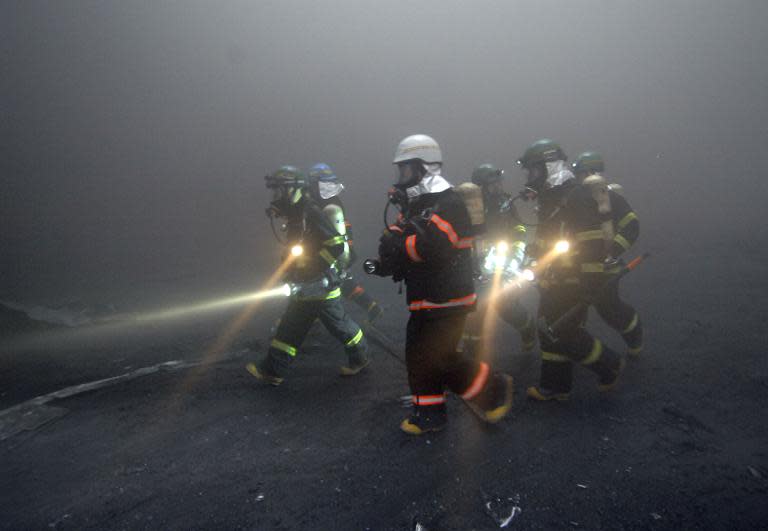Fire in South Korea hospice for elderly kills 21
A fire at a South Korean hospice for elderly, infirm patients killed 21 people Wednesday -- the latest in a series of deadly accidents following last month's ferry disaster that claimed the lives of around 250 schoolchildren. Seven people were injured in the blaze, which broke out shortly after midnight at the hospice in southern Jangseong county which housed close to 80 chronically ill, largely bedridden patients, including stroke victims and advanced Alzheimer's sufferers. Although the fire was brought under control within 30 minutes, many on the upper floor of the two-storey building were unable to evacuate as the rooms filled thick, acrid smoke. "Most of them died as the result of smoke inhalation," a fire official told AFP by telephone from Jangseong, about 190 miles (300 kilometres) south of Seoul. A nurse and two assistant nurses were on duty at the time, and one of them died as she tried to douse the flames with a fire extinguisher. It was the second deadly blaze in two days after seven people were killed and 41 injured in a fire at a bus terminal near Seoul on Monday. The fact that the victims were elderly and infirm will fuel concerns that South Korea's rapid economic development has come at the expense of basic safety standards -- particularly for those most vulnerable or at risk. The country is still reeling from the trauma of the April 16 Sewol ferry tragedy which killed around 300 people -- most of them high school students. - 'Terrible thing' - Lee Hyung-Seok, chief administrator of the Jangseong hospice, knelt and touched his forehead to the ground in a display of contrition. "I'm sorry. I apologise for this terrible thing," Lee said. In the wake of the Sewol disaster, President Park Geun-Hye vowed harsh penalties for any acts of criminal negligence that resulted in fatal accidents. The 20 patient fatalities were among 34 people in wards on the upper floor, only seven of whom managed to escape the fire by themselves. Seven more were rescued by firefighters but were in a serious condition as a result of smoke inhalation. The precise cause of the fire was not immediately clear, although it was believed to have started in a storage room on the upper floor. The incident will intensify pressure on President Park, whose ruling Saenuri Party is expected to suffer a voter backlash over the Sewol ferry disaster in nationwide local elections next week. The loss of so many young lives on the Sewol triggered a bout of intense soul-searching in a country that had, until now, taken enormous pride in its extraordinarily rapid transformation from a war-torn, impoverished backwater to Asia's fourth-largest economy. Investigations have suggested the disaster was almost wholly man-made: the result of cut corners, regulatory violations, poor safety training and a woeful lack of oversight -- all, or nearly all, attributable to a desire to maximise profits. Much of the public anger has been targeted at the political establishment, including President Park who tearfully apologised in a televised address to the nation last week. She vowed a radical overhaul of national safety procedures and announced that she was dismantling the coastguard, whose response to the ferry disaster was widely criticised. Recent weeks have also seen two subway accidents which claimed no lives, but left several hundred injured. In February, the roof of a gymnasium packed with college freshmen collapsed at a southern mountain resort, killing 10 people and injuring 200.



